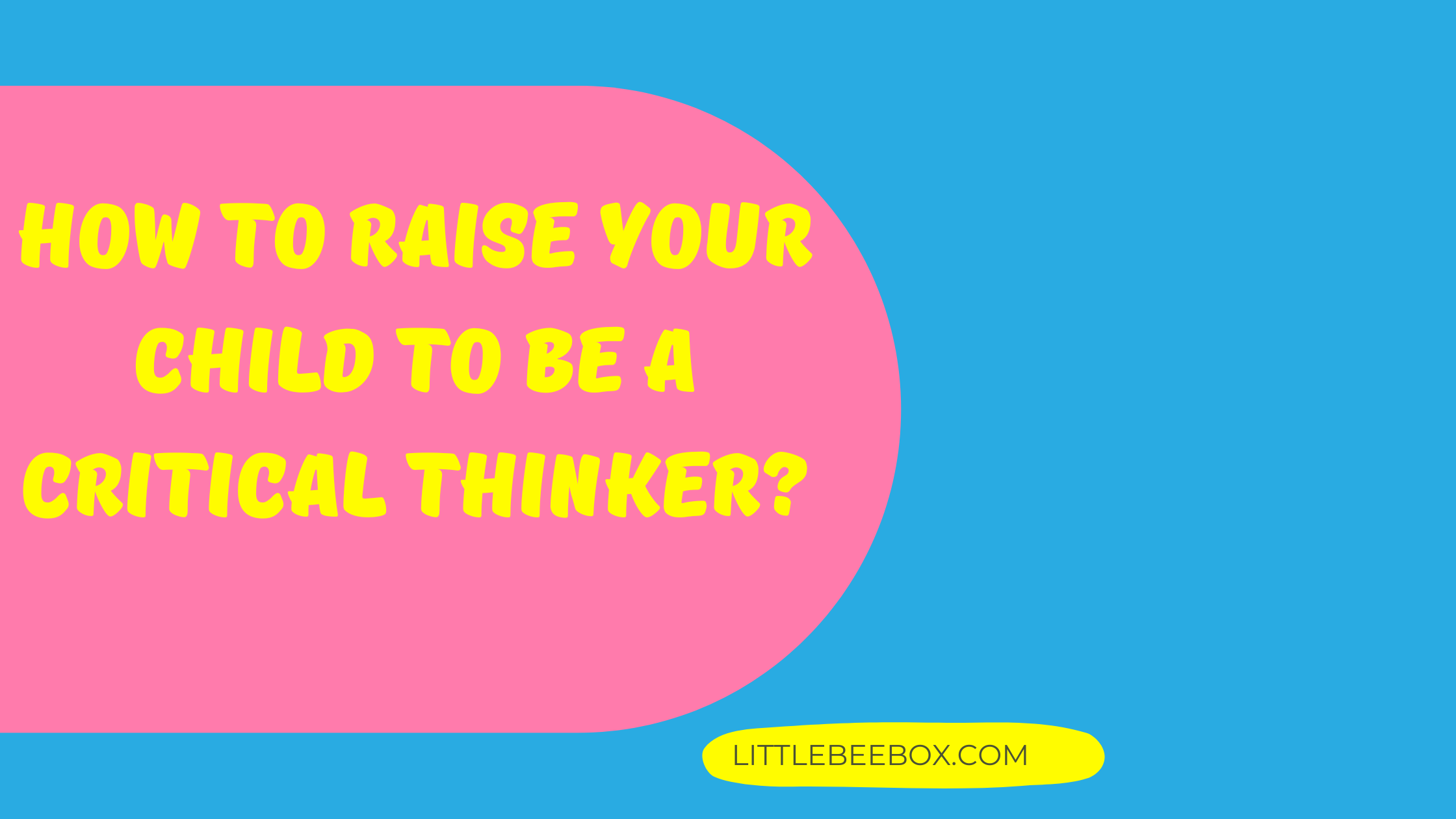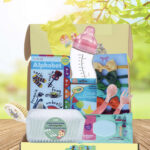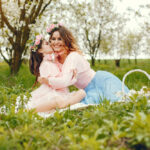
How to raise your child to be a critical thinker?
Every day your kid undergoes a range of experiences and emotions and needs to navigate through these mazes. It can be as challenging as a math problem or how to spell “Cat” for a toddler to how to play with a toy for a baby or grab the treats placed on a higher shelf. Whatever it is, everything is new and can be puzzling for your little one. In this bombardment of emotions, challenges, puzzles, and perplexities, it is a crucial duty of the parent to teach their little star to be a critical thinker.

The child must know how to process what they are encountering, hearing, feeling, and seeing for them to form their very own viewpoints, assessments, and perspectives. Critical thinking is the ground of early education as well as a meaningful life skill. Without the ability to think critically, your kid can struggle in many globes of life as they grow up. It is a universally acknowledged fact that no matter what your child might do professionally as they reach adulthood, they must know to think critically, solve various types of problems and make decisions for themselves. As a guardian, you must make sure your child develops a healthy and helpful critical ideology before they leave their nest.
Critical thinking skill set pivots around the capacity to create, imagine, evaluate and analyze our surroundings, it is essential for a person to determine the validity and integrity of what lays in front of them, to distinguish between truth and false, factual or nonfactual to make better decisions, opinions and include better people in one’s social circle. This indicates how vital this skill set is for your child to succeed professionally, socially, and academically.
“Not thinking carefully [and critically] can lead to information being misconstrued; [and] misconstrued information can lead to problems in school, work, and relationships.” These are the remarks of Amanda Pickerill, Ph.D. who is licensed with the Ohio Department of Education and Board of Psychology.
Critical thinking also authorizes your kid to access a more profound and better understanding of the world as well as how they see themselves and their pursuit in life. In addition to this, kids who think critically tend to be more vigilant and open-minded to their surroundings, leading to better adaptability and fewer behavioral issues.
Among all these benefits and edges, as a parent, you might question yourself about how to train and raise your little star to be better at this skill. Just a few things to keep in mind and sowing them at an early age can help you make a tremendous optimistic difference in your child’s life.
We all have heard of “the apple doesn’t fall far from the tree”, this is true in learning to think critically as well. The best and infallible way of teaching this craft is by making your own life a model of it. Our young ones are impressionable beings; they observe and copy what you do. Consequently, it is your principal duty to promote and apply critical thinking in your life by investigating the information presented before you and inquiring about a statement that might be unjust and unethical.
But just acting as a critical thinker is not enough, you need to engage and play with your child as well. The key to this is engaging in joint activities, it can range from straightforward board games to solving puzzles together. For mind-stimulating games, toys, and products, the little bee box offers a huge, cost-effective range. It is also necessary to stimulate your child’s mind by spending quality time together and positively having conversations with them. Use these moments to discuss things below the surface level and dissect and examine a variety of issues critically.
Famous psychotherapist Morin says that another way to teach kids to critically think is to teach them how to decipher and face problems. For example, ask your child to brainstorm a minimum of five distinct ways to approach a certain problem.
A little mind-stimulating activity can be asking them to relocate a box without using their hands. A child might think it is unattainable but will later make an exertion by using their feet. Activities as uncomplicated as these can help your child take a few early steps into becoming a critical thinker.
As frustrating and nerve- wrecking it sounds, as a parent you should motivate your child to question. It can be exhausting to answer a constant, long stream of why’s, what’s and how’s but asking questions constructs the foundation of critical thinking. To make these questions more useful than monotonous, one can opt for special books designed to make this time momentous.
Little bee boxes provide parents with a collection of rejuvenating and creative baby books to help make this task easier for Parents. This will assist your child to understand and get better at pinpointing misleading statements from others. This questioning behavior and your steps to answer them will pay off in the end.

However, simply providing solutions and answers is not enough and might lead your child to be excessively coddled. Instead of this ask-and-answer approach, help your child learn through trial and error as well. It is okay for your child to make not all but some decisions for themselves. By simply encouraging them to choose between the flavors of ice-creams and helping them find their favorite flavor, you are enabling them to choose for themselves. Permit your child to accept and decline invitations as per their desire or choose their bedtime story, these baby steps will later allow them to face and beat peer pressure and people-pleasing.
Part of becoming a good critical thinker is the ability to be unbiased and open-minded.
Even though teaching open-mindedness can be difficult but it is certainly not impossible. As a parent, you must include concepts like diversity, justice, ethics, and inclusiveness in your day-to-day conversations with your child.
The development of a critical mindset can be one of the best gifts you can give your child. This will not only make them confident as a youngster and will help them become competent adults.


